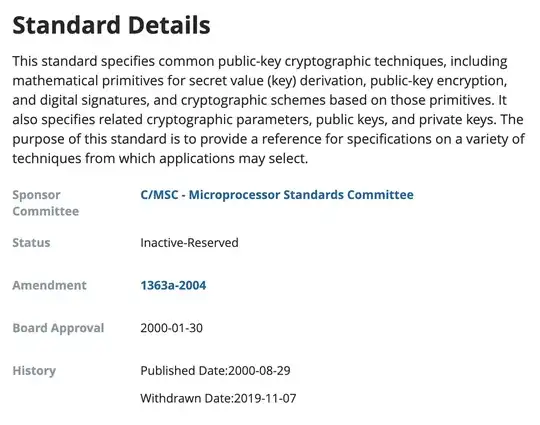IEEE 1363-2000 - IEEE Standard Specifications for Public-Key Cryptography - has been withdrawn on 7th November 2019 and is now in inactive-reserved status. What does this mean? Why was it withdrawn? Are some of the contents suspect? Some serious vulnerabilities were discovered? Should we no longer use it as a reference?
After reading about the meaning of inactive-reserved and of withdrawn, I thought it's not possible for the same standard to be both, yet, that is what is showing on the IEEE 1363-2000 Standard's web page (linked above).
